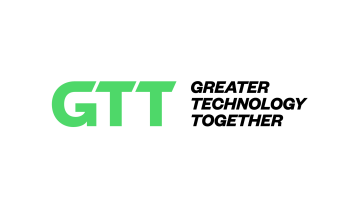The FCC has a web page dedicated to bill shock and encourages wireless users who haven’t achieved a successful resolution with their wireless carrier to call and complain. The same page explains one in six users has at one time or another experienced bill shock – totaling 30 million users in total.
One of the companies helping carriers reduce bill shock for their customers is Volubill, the policy management and charging company has many innovative ideas to help carriers in an era of data caps and ballooning cell phone bills. In a recent conversation with Akil Chomoko Head of Product Marketing at the company he explained the company looks at the business side of things – enabling subscribers to be unrestricted and subsequently free to choose from various options which not only serve the needs of the customer better but potentially can generate more revenue for carriers.
The company’s Policy Manager integrates via Diameter (Gx) and Radius or SOAP/XML. It can also support an embeddable Subscriber Profile Repository (interface) to centralized SPRs such as HSS, CRM or SDPs. Moreover it integrates with the company’s own charging system “Convergent Charging” or a third-party solution.
But what differentiates the company perhaps most may not be the technology but the marketing ideas and experience helping carriers offer truly unique services. For example, as carriers in the US and elsewhere are adding bandwidth caps to their services, why not offer an opportunity to buy more data for a fixed amount of money?
The company has an app which can in fact help customers not only get a sense of how much data they are using but just as importantly it allows customers to purchase all sorts of optional plans you may want to offer. Before we go any further it is worth pointing out that the app demo I saw had a meter in the top left hand of the phone interface allowing users to see how much data they have used in their plan – just as they might see how much battery is left on the same device or how much credit they have on their credit cards.
The company has helped carriers provide, provision and bill for a bewildering array of services. Starting with the most ironic is a “happy hour” service provided by a Saudi carrier which allows a free hour of calling – which could free up the network for other parts of the day. Another service in the same country allows parents to prevent their kids cellphones from working during prayer time.
Moreover, carriers could use the platform to enable quota within a quota services where a low-cost plan may not only have a monthly cap but could also have a daily cap. Other options allow a customer to have a larger video viewing limit, a time based cap – let’s say $5 for one hour, a $5/day tethering price, tiered pricing based on QoS level or how about lower pricing for consumers who don’t use BitTorrent?
Other options could be a $10/month unlimited Facebook package or the same $10 could provide unlimited access to a few URLs of the user’s choice. The parental example above could be further enhanced to include homework and bedtime.
Other options include multi-SIM plans where consumers, families and businesses with multiple devices could share bandwidth across the devices in aggregate. A master account could top up the service and add a user cap if desired.
One comment of interest from Chomoko is the device-based app is a better solution for the consumer who wants a usage cap threshold notification in a timely manner. He pointed out that a user in Google Maps could rapidly exceed their bandwidth cap by the time a warning is received via SMS.
A recurring theme in our discussion was marketing-driven business – not technology driven. And this makes a lot of sense.
One of the most interesting applications worth sharing which shows how this would work is a carrier in Indonesia giving companies access to data between 9-5 with a separate prepaid plan for employees to use the phone during other times. Moreover, email is active at all times allowing the company to still provide a phone to workers for personal use but only pay for business communications.
It should also be evident that with such solutions we may be entering a new world of subsidized connectivity where a company like Google may subsidize a YouTube bundle where enhanced QoS is provided to consumers. Likewise for other large companies like Facebook.
The challenge of course will be small competitors may not have the deep pockets or advertising base to compete with app giants – but such are the facts of life I suppose.
Other facts are carriers are rapidly running out of wireless bandwidth and having the flexibility to manage networks on a more granular basis may yield more revenue for carriers and potentially more flexibility for consumers.





